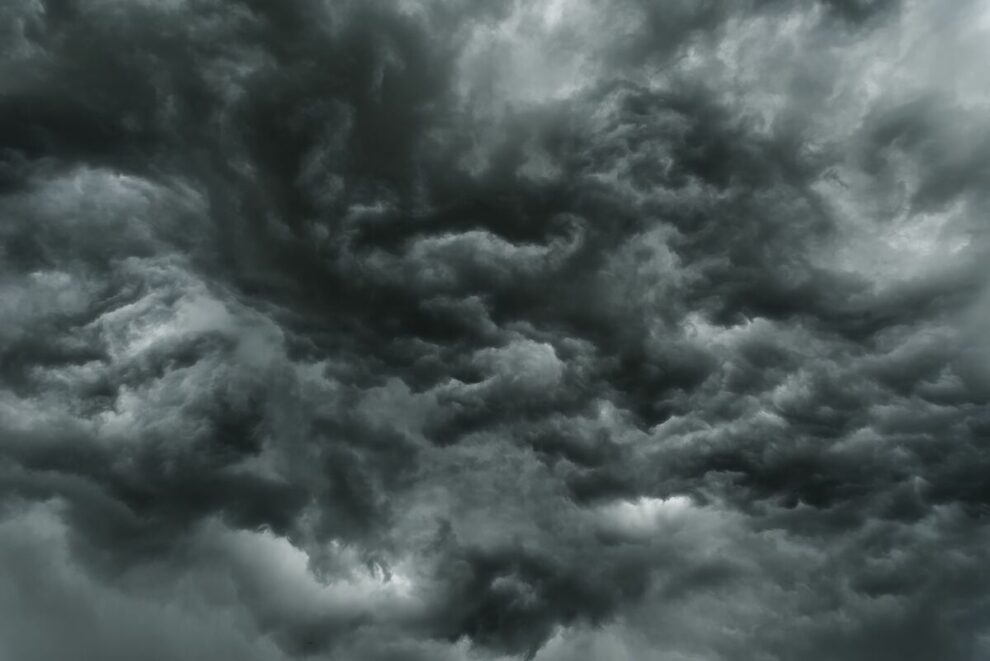The Atlantic “Weekly Planet” piece we cited last week celebrating the deadliness of Hurricane Beryl links to a story saying “Beryl is on track to be the strongest hurricane to hit the southernmost Windward Islands on record and the most intense for the area since Hurricane Ivan 20 years ago... parts of the easternmost Caribbean … have never experienced a hurricane with such ferocity in records going back nearly 174 years.” So we don’t know what happened before. Well, OK, we have some idea. At least if we have Internet access. And even a writer, with a 2012 B.A. in “English, psychology, journalism” from the University of Delaware ought to be able to look things up on Wikipedia. Such as the “Great Hurricane of 1780“, the deadliest Atlantic hurricane ever recorded despite the population being vastly lower then. Oh dear.
“Great” is a word here meaning “very big”, as in the late Great War, not “marvellous”. As Wikipedia explains:
“The Great Hurricane of 1780 was the deadliest Atlantic hurricane on record, as well as the deadliest tropical cyclone in the Western Hemisphere. An estimated 22,000 people died throughout the Lesser Antilles when the storm passed through the islands from October 10 to October 16. Specifics on the hurricane’s track and strength are unknown, as the official Atlantic hurricane database only goes back to 1851.”
Eyewitnesses were understandably rare. But people who were there and lived to tell the tale seem convinced it was a monster:
“The hurricane struck Barbados likely as a Category 5 hurricane, with at least one estimate of wind gusts as high as 200 mph (320 km/h), before moving past Martinique, Saint Lucia, and Sint Eustatius, and causing thousands of deaths on those islands. Coming in the midst of the American Revolution, the storm caused heavy losses to the British fleet contesting for control of the area, largely weakening British control over the Atlantic.”
And here’s something we do know:
“The death toll from the Great Hurricane alone exceeds that of many entire decades of Atlantic hurricanes. Estimates are significantly higher than for Hurricane Mitch, the second-deadliest Atlantic storm, for which figures are likely more precise. The hurricane was part of the disastrous 1780 Atlantic hurricane season, with two other deadly storms occurring in October.”
Oh my. A bad hurricane season before the Industrial Revolution. Are those allowed?
In such circumstances reaching for “the strongest hurricane to hit the southernmost Windward Islands” because a stronger one hit “the area” just 20 years back before climate breakdown thingy is a bit tendentious.
So is reporting on a hurricane season as proof of predictions before it actually happens. As Euronews Green also said:
“Earlier this year, some scientists argued that a category six was now needed to account for the strength of climate-change induced hurricanes. With studies showing tropical storms are becoming more intense, the traditional five-category Saffir-Simpson scale, developed more than 50 years ago, may not show the true power of the most muscular storms. Five monster storms in the Pacific since 2013 have had winds of 308 kilometres per hour or higher that would have put them in the new category. And though no Atlantic hurricane has reached this threshold yet, experts say as the world warms the environment for such a storm grows more conducive.”
The season runs through November 30, and perhaps by then there will have been an unprecedented number of ominous omens of unprecedented strength. Um apart from that 1780 one that apparently gusted to 320 km/h. Or not.
As the New York Times piece calling Beryl a “harbinger of what is to come this hurricane season” eventually conceded that it’s not because “Usually, early-season activity doesn’t have much bearing on the rest of the season’s activity.” But when things are unprecedented, precedent goes out the window ahead of time:
“But, in June, when that activity occurs as far east as Beryl did, Dr. [Colorado State University “expert in seasonal hurricane forecasts” Philip] Klotzbach says, ‘it tends to be a harbinger of a very busy season.’”
And when harbingers tend, look out. But if not, will they go back and say oops, our bad, should have reported what did happen not what we discerned might? Or doesn’t attribution science attribute predictions to people if they don’t come true?



Darn the luck, more of those pesky facts! How can we "follow the science" when data keeps getting in the way?
And if you want to go back a little futher there's the Great Storm of 1703 in England. An extratropical cyclone that struck central and southern England on 26 November 1703, it has been estimated as Category 2. OK, not much in comparison to Hurricane Beryl, but in England?! And in November?
Just for historical reference, Thomas Newcomen built the first commercially useful steam engine in 1712, so you can't blame the 1703 storm on the industrial revolution.
It's so cruel to those people to keep confusing them with facts. But the uncaring universe just keeps on doing it.
The alarmists said 2023 was gonna be a terrible hurricane season.There was ONE!But they found other ways to scare people anyway.